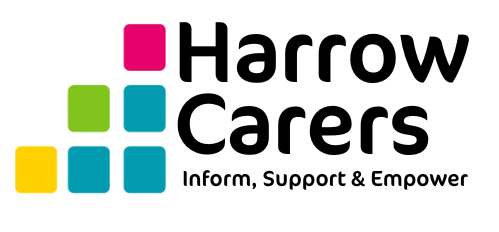
by Admin | 18.01.2019
Adding the words ‘part-time’ or ‘flexible’ to your job search invariably reduces the options available. On the other hand, more and more employers are offering part-time, or flexible working conditions simply because it’s much easier to manage now than ever before. Not only has technology revolutionised the way business is conducted allowing for real-time communication without the need for face-to-face interaction, but the importance of work-life balance has changed how people believe they should live.
Whether you are a carer, or a parent who needs flexible hours or someone who doesn’t believe in the traditional 9-5 work schedule, there are plenty of flexible or part-time work options available. The trick is to find the right one that pays well enough.
Here are our top tips that have worked for some of the carers we have assisted.
- Freelance… If you already have specific skills e.g., accountant, graphic designer, copywriter, web developer, etc. you could freelance and work on projects that suit work around your caring or other responsibilities. Freelancers usually charge on an hourly basis or on a project basis so you could set your own prices and work the hours that suit you. Websites such as Upwork and Fiverrallow freelancers to post their skills, prices and availability to be matched with companies requiring their skills. Whilst this can be a lucrative part–time option, you will have to spend time pitching for projects and going out there to “get the business.” Also, you will need to manage your own finances and tax returns or hire an accountant. If that’s already something to do, freelancing is a great way to work on your own terms, earn well and work around your caring duties.
- Educate or re train yourself… If you believe you need to upskill, it might be a good idea to undertake an educational or training course that would give you the practical know how of a profession, for example, teaching allowing you to become a tutor, website development, writing, allowing you to become a copywriter, accounting, etc. You’ll need to consider the cost and intensity of these training courses, but if it’s something you can manage, it will be a useful stepping stone in allowing you to build a career over time that works around your needs. There are several part-time courses that are available. Please do talk to one of our team members, who will be able to guide you through your options.
- Use the practical knowledge we all have…If you are unable or prefer not to “go back to school,” there are other jobs that can offer a good part-time wage. These include; caring assistant (but it may not be something you want to do if you are already caring for someone), cleaner, delivery driver, childminding, looking after pets and others. Whilst these may not be the ‘dream jobs,” they offer reasonable hourly rates and allow you to choose the hours you want to or can work.
- Current or previous employer…If you are in a position where you need to leave your job to look after a loved one, or have already left a role to become a full-time carer, discuss part-time options with your employer. Finding committed and talented people is extremely difficult and employers are open to working with employees in offering flexible options to retain them. Don’t automatically assume your employer will ask you to leave if you need to cut your hours or even take a break for a while.
We are fully aware that ‘one size doesn’t fit all.’ What works for one family will not work for another. That’s why it’s important for you, as a carer, to contact us so we can assess your specific situation and advise you on the best options (of which there are several, not just what we’ve listed above) for you to get back into employment.
We have worked with several carers and have helped them find well-paid, part-time or flexible jobs to fit around their caring duties. Please give us a call at 0208 868 5224 to find out how we can help you find a role that works for you.

by Admin | 18.01.2019
As a full-time carer, it’s challenging to be able to hold on to a job. Responsibilities around your caring duties and the unpredictable nature of the situation make it difficult to commit to a specific job. For many of the carers we work with, finding and securing jobs that offer flexible solutions like part-time, shift work and working from home are exactly what they need.
Working from home is often the only way many of our carers can work, as it not only provides an income, but allows for the highest level of flexibility; you can work the hours that suit you, whether it’s early morning or late at night. And it’s never been easier. With tools such as Skype, Zoom, Google Docs, Xero and Quickbooks Accounting and others, the way business is conducted has undergone a revolution due to technological advancements.
Today, many, if not most employers are not only open to the idea of work from home, but actively encourage it. In addition to being able to access a much wider pool of talent who would otherwise be unable to work, business owners are able to minimise overhead costs incurred through office space, equipment, etc.
Whilst working from home is a practical and positive alternative to rigid job schedules, it requires a high level of self-motivation and discipline to ensure that you get the job done.
Here are some tips to ensure that home working is worthwhile and effective.
As far as possible, set specific work hours that allow you to focus on your job but around your caring responsibilities each day. For example, if the person you are caring for goes to bed by 9:00pm, you can work every evening from 9:30-11:30pm or if they take a nap in the afternoon, you could work afternoons. There will be times when you can’t keep to the times you’ve set, but overall try and stick to a routine.
Communicate your hours to your employer and manage their expectations so that they are aware that you are not available at all times.
Set yourself daily tasks and track your time. Take some time each morning to plan your activities and be aware of how much time you are spending on each task. If you are doing client-based work, make a note of the time spent on each client and maintain a time sheet.
Prioritise your tasks. Different activities have different priorities. Complete your most important tasks first. In fact, plan your most important task the evening before and get to it first thing in the morning. Batch your emails and telephone calls so that you don’t spend all day responding to them. Set aside 3-4 time slots through the day to catch up with your correspondence.
Use any and all available technology to increase productivity and save time. There are plenty of apps that can manage your calendar, meetings, to do’s, notes and documents. Use them; they make working from home more efficient and stream-lined. Some of the most popular apps are Evernote, Any.do, Fantastical 2, Due and Dropbox.
Recreate the work environment. If possible, avoid working from the kitchen table or the couch. Find a space in your home that you can exclusively have as your workspace with your desk, computer, printer and any other equipment you may require. Make this work area is as quiet and comfortable as you need it to be with adequate lighting and heating and one where the environment is most conducive to your productivity, perhaps with some plants and paintings.
Get rid of the clutter especially on your desk. A clear desk symbolises a clear mind allowing for thoughts and processes to flow smoothly. It also saves large amounts of time as you would know where everything is. Eliminate anything you don’t need for your work.
Dress for success. It’s very tempting to ignore your “look” and spend all day in your pyjamas or loungewear. However, it takes you away from being in “work mode” and leaves you open to distractions. According to Dr. Karen Pine, professor of psychology at the University of Hertfordshire and fashion psychologist,
“When we put on an item of clothing it is common for the wearer to adopt the characteristics associated with that garment. A lot of clothing has symbolic meaning for us, whether it’s ‘professional work attire’ or ‘relaxing weekend wear’, so when we put it on we prime the brain to behave in ways consistent with that meaning.”
Don’t ignore ergonomics. You cannot be effective if you are not physically comfortable. Do some research on the sort of chair you need and adjust its height so that you are not slouching and straining your back or neck. Long term aches, pains and fatigue in the workplace are often caused by poor posture.
Make sure you take regular breaks. Taking frequent breaks can increase productivity and creative thinking and prevent stress and exhaustion. A short walk or run around the block or a trip to the shops might be a good way to rejuvenate yourself.
Working from home can be very lonely. So, try and step out to meet friends and family as and when you can. If your employers are organising a social event, if possible, join them. It will give you a sense of being part of a wider team and a sense of belonging.
If work from home is a route to getting back to work that interests you, please give us a call on 0208 868 5224. At Working for Carers, we work closely with both carers and employers to find the best solutions to help carers get back into work. Our team of expert advisors will assess your needs and support you in the areas you need help. Please do not hesitate to get in touch.

by Admin | 18.01.2019
Part time jobs and flexible working options are here to stay. Revolutionary progress in communication and information technology have changed the way businesses operate allowing for flexible working solutions.
Over the last decade or so, there has been a monumental shift in the way people live. With the UK’s ageing population, skyrocketing childcare costs and people’s need to have a work-life balance, employers must embrace a ‘new workforce’; one in which a large number of skilled and desirable employees are no longer able to work traditional full-time hours.
A large proportion of the UK’s labour force will have their working lives affected or interrupted by their caring responsibilities. Today, there are about seven million (that’s 1 in 10 people) carers in the UK and this number is only set to increase. These employees will seek out firms and businesses who offer family-friendly, flexible working opportunities to fit around their caring and domestic duties.
From an employer’s perspective, the ability to offer flexible solutions is no longer a luxury. It is a necessity in our changing society and a way to attract and retain the best employees.
At Working for Carers, we not only work closely with carers, getting them job-ready, but have built relationships with several local businesses and large businesses such as John Lewis, where they have been able to employ carers through part time and flexible working solutions. More importantly, they have seen the benefits of offering part-time and flexible opportunities on business productivity.
If you are an employer, especially if you are small business, you need to be able to see a positive cost-benefit of flexible working amongst your employees otherwise it won’t work for your business. We spoke to some of the employers we’ve partnered and asked them to share their thoughts on how they’ve benefitted by offering flexible working to their employees. This is what they had to say:
- Offering flexible working, opens up a much wider pool of talent to choose from, allowing you to recruit people that really suit your requirements.
- Increased employee morale, engagement and commitment. Employees who are not stressed about managing and balancing their other commitments demonstrate higher levels of happiness at their jobs and show greater levels of commitment and engagement. It allows employees to focus on their jobs during the hours they are committed to their jobs and then switch off to look after other responsibilities when they are off-the-clock.
- Reduced absenteeism. This is a massive cost-saving for you as an employer. Employees who are have flexibility in their work hours schedule their ‘other’ commitments around their work commitments as they are given the time to do so. This greatly reduces employees not turning up to work.
- With flexible working options, many of the employers have noticed a sharp decrease in staff turnover, reducing recruiting and training costs at regular intervals. Employees who feel they are being looked after and are able to both work and manage their caring or other duties, are unlikely to leave the company.
- Companies that offer job share options or remote working are often able to cut overheads through desk sharing or working from home. We’ve worked with employers who have saved costs on opting for a smaller office space as some of their employees do a job share, requiring only one desk and one computer for those roles, yet gaining the skills of two people per job.
- As an employer, you will be able to offer extended service hours, reducing the need for overtime with employees working at different times in the day.
- Working hours can be matched with peaks and troughs of business to maximise productivity.
- One of the key benefits, employers have stated is the improvement in diversity in workforce. Part time or flexible working allows for a broader mix of skills, knowledge and experience giving you, as an employer, the opportunity to be more creative in your recruitment approach.
- It will make your company more attractive to potential employees giving you the pick of the best talent.
As an employer, whilst it’s important, almost mandatory today to offer flexible working options, you must have a clear, coordinated and widely understood process in place for it work. Working practises, schedules, timesheets and expectations must be outlined and set in place at the start of a contract and communicated with managers and employees alike. The larger the organisation, the more complicated it is and it would be good practices to have a dedicated HR staff member project managing it. If you are a small business, whilst not as complicated, you would still need someone coordinating and managing the process.
The bottom line is that if you are an employer, a well-planned and efficiently implemented flexible working system for your employees, will have not only a positive impact on your employees, but on your business’ productivity and output as well.

by Admin | 18.01.2019
Most of the carers we work with are full-time carers; caring for their loved ones in lieu of a job or career. There are also many carers, who whilst fulfilling their caring role are able to take on a part-time job and earn an income. For many carers, being able to work is way to continue being part of the work force, maintain and update their skills and feel a sense of personal fulfilment.
Finding a part-time job is challenging in that they are not as readily available as full time jobs, however more employers are now offering flexible and part-time options than ever before.
We thought we’d share some top tips on how to go about finding a part-time job.
- Reach out to your employer (current or former)
If you are currently employed full-time and need to move to part –time hours, reach out to your employer and discuss your needs with him or her, being as frank and open as you can. Most companies today are understanding of personal circumstance changes and are happy to consider reduced hours of work to fit around these circumstances. If you are not currently employed, contact your former employer and check if they are able to offer you a part-time role. This should be your first port of call. Your former employer knows you and knows the kind of work you are capable of.
- Think about your schedule
You need to know exactly how many and what hours you can work. Be upfront with potential employers about your availability. Is your schedule flexible enough for shift work or do you need specific hours every day/week? If you can do shift work, express your flexibility as you will be required to work a variety of hours.
- Treat the process like a full-time job search
Looking for a part-time job takes as much time as looking for a full-time job and in fact, maybe more time-consuming as part-time jobs are harder to find. Commit to the process and leave no stone unturned. Upload your CV on all the relevant job boards, visit your local high street recruitment firms and spread the word amongst friends and acquaintances that you are looking for a part-time role. You never know – someone might know someone who has a job going.
- Target industries that are known to offer part-time jobs
There are some industries that are more able to offer part-time roles than others. Apply for jobs to companies within these industries; industries such as retail, delivery, customer service, hospitality, education, charities and healthcare.
- Beef up your CV
Make sure your CV is up to date and clearly demonstrate the kind of work you have done and how you have used your skills. Express your skill level clearly and be sure to put everything down. You may think a specific skill is not relevant but a potential employer might think it isJ
- Consider temporary work
Don’t rule out temporary work. If you can get a part-time role that’s temporary, take it. If you prove yourself and the employers are happy with you, chances are that they might make the job permanent.
- Think about volunteering
Whilst looking for a part-time job, if you can, volunteer at your local charity shop or any other organisation. Often, these volunteer roles can become paid jobs. Charities are known to offer part-time roles.
- Take the interview seriously (link to interview workshop)
If you get an interview for a job, make sure you present your best self. This is usually the last step to being offered the job. Here are some quick tips for an interview:
- Research the company before-hand so you know exactly what they do
- Prepare answers to commonly asked interview questions
- Dress appropriately
- Be on time
- Be honest
- And finally – have patience.
Finding something that fits in with your schedule and needs, takes time and perseverance. The process can be frustrating and sometimes demoralising if you get several rejections. But pushing ahead and keeping at it will eventually get you there.
We have worked with several carers and have helped them find flexible part-time jobs to fit around their caring duties. Please give us a call on 0208 868 5224 to find out how we can help you find a role that works for you.

by Admin | 18.01.2019
Like nurses and teachers, carers are one of the unsung heroes in the UK. You are a carer if you care for a friend or family member who due to illness, disability, a mental health problem or an addiction cannot cope without your support.
What many of us don’t realise is that you, as a carer, also need support; emotionally, financially and practically. The level of support needed will differ based on your personal circumstances, but, we have seen that almost all carers need some amount of support.
This is where Carer Assessments come in handy.
Carer Assessments are an opportunity to discuss with the local council what support or services you need. The assessment will look at how caring affects your life, including for example, physical, mental and emotional needs, and whether you are able or willing to carry on caring.
Who can have an assessment?
If you are a carer you are entitled to an assessment to determine the level of support you need, regardless of f the amount or type of care you provide, your financial means or your level of need for support.
These assessments are carried out by your local council adult social services and can be done even before you take on caring duties. Please visit your local council either in person or via their website to ask for an assessment. You should be able to find the information in Health and Social care section of your council’s website. Alternatively, please visit your local care centre(link to Harrow Carers) and they can point you in the right direction.
You can even be assessed as a carer if the person you are looking after has had a needs assessment or if the local council have decided that they are not eligible for support. Often a needs assessment of you and the person you are looking after can be done at the same time. Please discuss this with your local council. If more than one person is caring for a person, even if that person is a young carer under the age of 18, each carer is entitled to their own assessment.
How is the assessment done?
Assessments can be done over the phone or online. Your local council may carry out a supported self-assessment. This could involve you filling in a self- assessment questionnaire, and then being contacted by the local council to discuss what you have written on the form.
Many councils prefer to conduct assessments in person and this is usually done at your home or at the council office.
Your assessment should cover:
- your caring role and how it affects your life and wellbeing
- your health – physical, mental and emotional issues
- your feelings and choices about caring
- work, study, training, leisure
- relationships, social activities and your goals
- housing
- planning for emergencies (such as a Carer Emergency Scheme) – the local council should be able to tell you more about what they can do to help you plan for an emergency
The aim of the assessments is to help you get the support you need. Be as open and honest as you can and don’t be afraid or embarrassed to share your thoughts and feelings with the support worker.
What happens next?
Once your assessment is complete, to be able to receive services and/or direct payments from the local council, you will need to meet the national eligibility criteria and therefore have what the law calls ‘eligible needs’.
You will meet the eligibility criteria if your well-being is affected by your caring duties.
There are three questions that the local council will need to consider when making their decision.
- Are your needs the result of you providing necessary care?
- Does your caring role have an effect on you?
- Is there, or is there likely to be, a significant impact on your wellbeing?
If the answer to all three questions is yes, then you will have eligible needs.
If you don’t have eligible needs…
If the local council decides that you do not have eligible needs, then will receive a written explanation for this assessment.
You should also be given advice and information about what could be done to prevent or reduce your needs either now or in the future, based on your specific circumstances.
If you do have eligible needs…
If the local council decides that you do have eligible needs, then providing you want them to, they have a legal obligation to meet these needs and must draw up a support plan detailing how these needs will be met.
It may be agreed that the best way to help you as a carer is by providing services directly to you, by providing services to the person you are looking after, or a combination of both.
The local council can provide services themselves, or arrange services through another organisation. Alternatively, you or the person you are looking after can request direct payments, which are payments which enable you to buy services to meet your eligible needs. For more information you can view the direct payments section of our website.
The local council may or may not charge you for carers support, most councils do not. If they do, they must carry out a financial assessment to work out whether you must contribute and if so, how much. If the help you are offered is free, the local council do not have to carry out a financial assessment.
Note: If the local council do charge for carers support and the outcome of your financial assessment is that you will have to pay the full charge, then the local council only must meet your needs and draw up a support plan if you ask them too. The local council can then issue an additional charge for this.
The support plan must include:
- details of the needs identified in the assessment
- which needs meet the eligibility criteria
- which needs the local council is going to meet, and how
- the outcomes that you want to achieve
- information about the personal budget available (the amount of money that the local council has worked out it will cost to arrange the necessary support for you)
- information about direct payments
- information and advice to support you in your role as a carer and address your needs
Some examples of the kind of help that could be available directly to you as a carer include:
- help with transport costs, such as taxi fares or driving lessons
- costs for a car where transport was crucial, such as repairs and insurance
- technology to support you, such as a mobile phone, computer where it is not possible to access computer services elsewhere
- help with housework or gardening
- help to relieve stress, improve health and promote wellbeing such as a gym membership
Some examples of the kind of help that could be available to the person you are looking after, to help you as a carer include:
- changes to their home to make it more suitable
- equipment such as a hoist or grab rail
- a care worker to help provide personal care at home
- a temporary stay in residential care/respite care
- meals delivered to their home
- a place at a day centre
- assistance with travel, for example to get to a day centre
- laundry services
- replacement care so you can have a break
The aim of this article is to give you an overview of the kind of support available to you, as a carer. To obtain an assessment of what you are and are not eligible to receive, please contact your local council or your local carer centre.
Your local carer centre will be able to point you in the right direction and will guide you step-by-step on how you can be assessed and how you can access the support you need.
At Working for Carers, our aim is to help carers, like you, find flexible or part-time employment that works around your caring duties. Caring for carers and looking after your needs is our purpose of existence. Please do not hesitate to get in touch with us on 0208 868 5224 to find out how we can help you.





